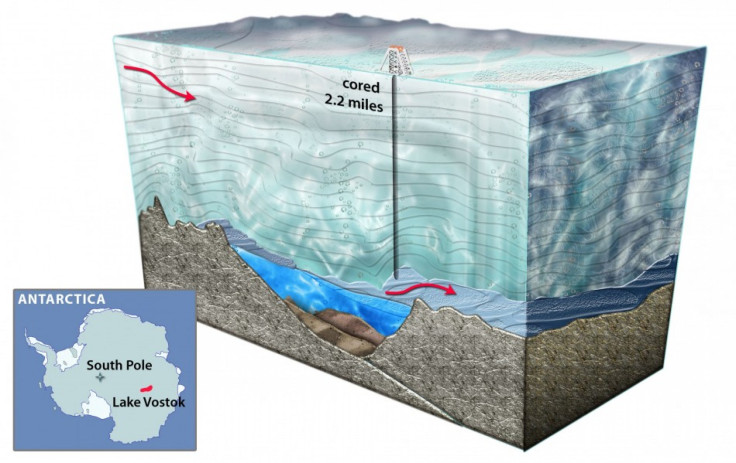Lake Vostok Breached: What it Means for the Closely-Watched Lake

Russian explorers confirmed Wednesday that they breached Lake Vostok, a body of water 3.5 kilometers (2.2 miles) beneath the Antarctic surface.
Drilling stopped after the suspected Sunday breach at 20:25 Moscow time, a breach confirmed by Russian scientists Wednesdya.
The drill reached the Lake Vostok and 30-40 meters (100-131 feet) of water rose in the borehole, confirmation that the subglacial lake had been breached, according to the New Scientist.
Valery Lukin, the head of the Arctic and Antarctic Research Institute released a statement in Russian about the Lake Vostok breach.
The statement did not mention any contamination from the drill that conservationists feared would pollute the pristine lake that has been under the ice for 20 million years.
It's like exploring another planet, except this one is ours, Columbia University glaciologist Robin Bell wrote to The Associated Press in an email.
There is no other place on Earth that has been in isolation for more than 20 million years, Lev Savatyugin, an AARI researcher, told the AP. It's a meeting with the unknown.
Scientists hope to find new microbial forms of life that might give a freeze-frame look at early evolution.
In the simplest sense, it can transform the way we think about life, NASA's chief scientist Waleed Abdalati wrote to the AP via email.
Sampling the lake will still take over a year, according to the New Scientist. The drilling team planned to pierce the ice capsule that encloses the lake, allow lake water to enter the drill and freeze thereby creating a plug that would seal the lake from contamination. The team will then return next summer to start to collect samples.
© Copyright IBTimes 2025. All rights reserved.




















